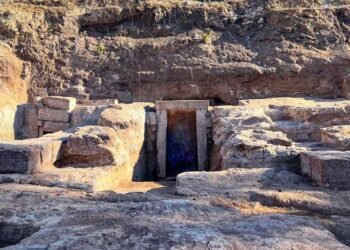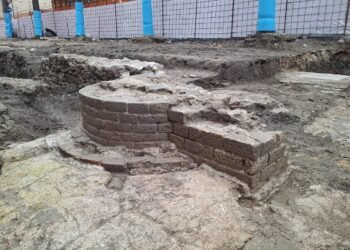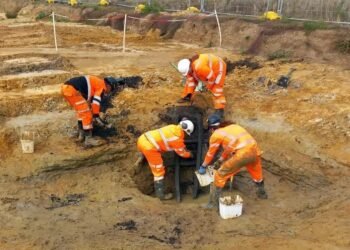Archaeologists from the West Norfolk and King’s Lynn Archaeological Society (WNKLAS) are gearing up to search for King John’s legendary lost treasure.

Born in 1166 at Beaumont Palace in Oxford, King John’s reign was marked by turmoil, which earned him a notorious reputation as ‘one of the worst kings ever to rule England.’ His conflicts with Philip II of France ignited tension with his barons, leading to a resistance movement and the eventual negotiation of the Magna Carta at Runnymede.
The saga of King John’s treasure traces back to 1216 when, amid the chaos of war, his baggage train carrying the English Crown Jewels was swallowed by the unpredictable tides of Wash Bay in Norfolk. Over 800 years later, the mystery still captivates historians and treasure hunters alike.
The upcoming archaeological endeavor, spearheaded by WNKLAS, aims to unearth clues about this ancient enigma. The excavation site, nestled in the Fenlands near Walpole Marsh, holds promise due to its historical significance and strategic location within the medieval landscape. Utilizing LiDAR technology, researchers selected this area, mindful of its past as a vast marshland vulnerable to flooding.

Clive Bond, chairman of WNKLAS, expresses both anticipation and realism about the endeavor, acknowledging the challenges posed by the ever-changing river systems. He remarks, “It’s an opportunity to take a glimpse into the landscape. There could be something there, absolutely, but actually getting to where it’s been deposited in a changing, dynamic river system – you’re looking a million to one.”
Enso Energy’s plans to construct a solar farm on the site have catalyzed the need for extensive surveys, including archaeological assessments.
While optimism abounds among archaeologists, skepticism looms over the likelihood of success. Dr. Paul Richards, a local historian, casts doubt on the prospects, citing the absence of previous findings and King John’s depleted coffers due to incessant warfare. Nevertheless, the allure of uncovering a piece of English history remains undiminished, reminiscent of the discovery of King Richard III’s remains beneath a Leicester car park in 2012.























